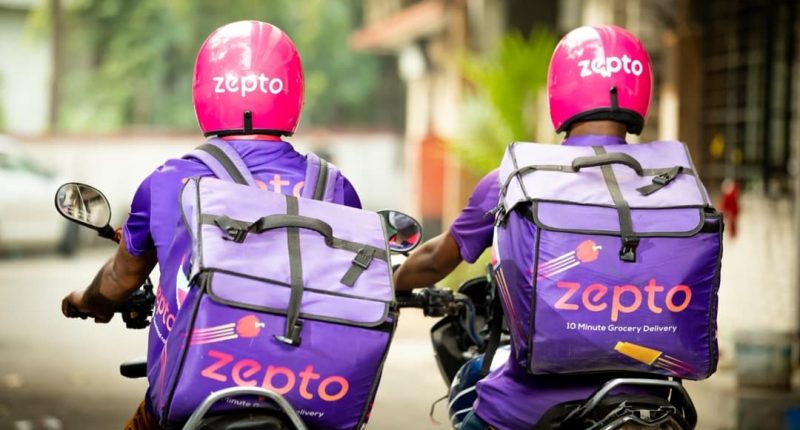The meteoric rise of quick commerce (set to reach $5.5 billion by 2025) has resulted in the revolution of the online grocery delivery sector in India. Today, more and more players are adopting the 10-minute delivery model to get an edge over their competitors and spread across Indian cities. High-profile names such as Swiggy (with Instamart), Dunzo, Blinkit, and BigBasket have entered the quick commerce arena.
And while many have debated as to whether there is even a need for such a model, that hasn’t stopped investors from pouring in zillions of dollars into these companies. Zepto, the quick commerce startup that kind of set the ball rolling for this segment in India, has now seen some of that money downpour coming its way. The company has raised a staggering $200Mn, valued just shy of $1Bn (valued at $900Mn) from a string of high profile investors.
The Series D funding was led by Y Combinator Continuity and included participation from Kaiser Permanente and other existing investors such as Nexus Venture Partners, Glade Brook Capital, Contrary Capital and Lachy Groom. With this, the hyperlocal delivery startup has raised $360 million to date. The Series D comes months after Zepto closed a $100Mn Series C in December last year.
The fresh funding also puts the valuation of Zepto at $900 million, putting it on the threshold of entering the unicorn club. India has already seen 14 unicorns this year – Neobank Open was the latest one and India’s 100th unicorn over the years.
Zepto intends to deploy the fresh round of funding towards growing its product and tech teams to over 1,000 people in a few months, including engineering, analytics, operations, marketing, finance, and human resources. Funds will also be used to fuel its expansion to 24 cities in the next year, including non-metropolitan ones.
Currently, its 10-minute delivery service has a presence in 11 cities across the country and processes hundreds of thousands of orders daily. Founded by 19-year-old Stanford drop-outs Aadit Palicha and Kaivalya Vohra, it has offices in Bengaluru and Mumbai.
According to Palicha, who is also Zepto’s CEO, the current annualized revenue of the startup falls between $200-400 million, and he intends to take it to “at least $1 billion” by the quarter ending March 2023. Certainly, Zepto has come a long way since it began in stealth mode early last year and clocked 800% revenue growth year-over-year, while its cash burn fell by five times on a pre-order basis.
The Tech Portal is published by Blue Box Media Private Limited. Our investors have no influence over our reporting. Read our full Ownership and Funding Disclosure →






